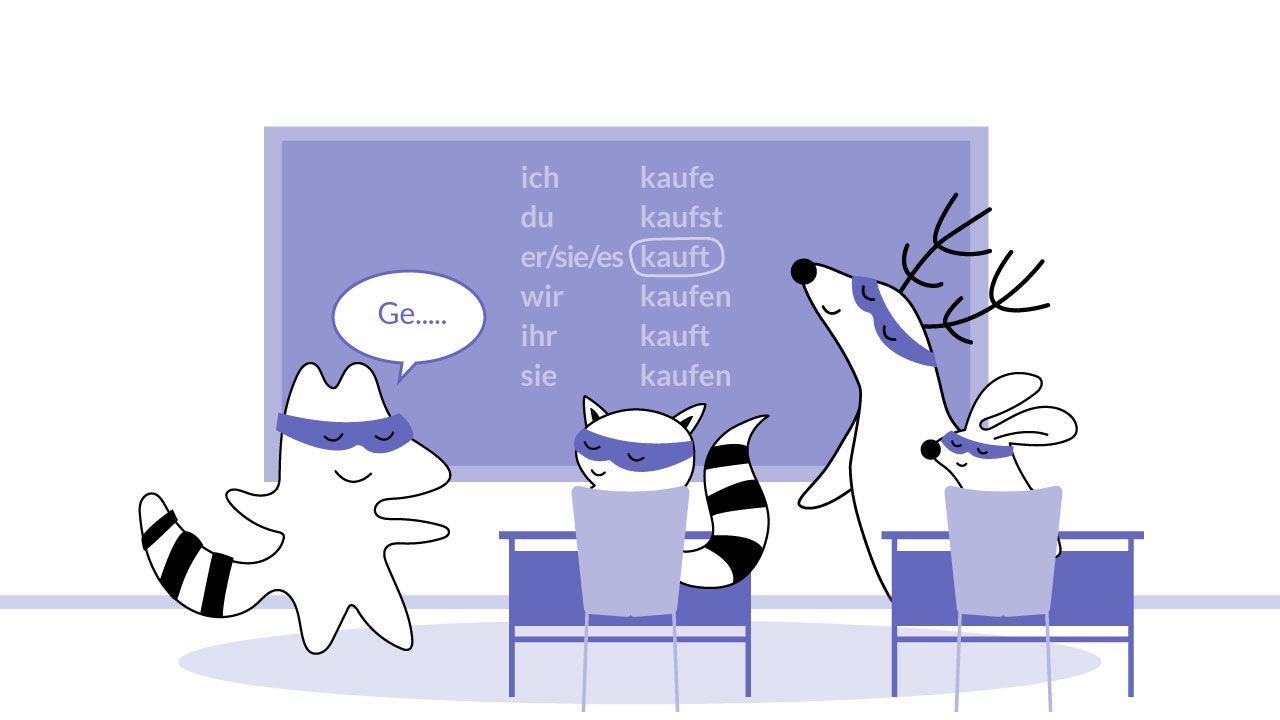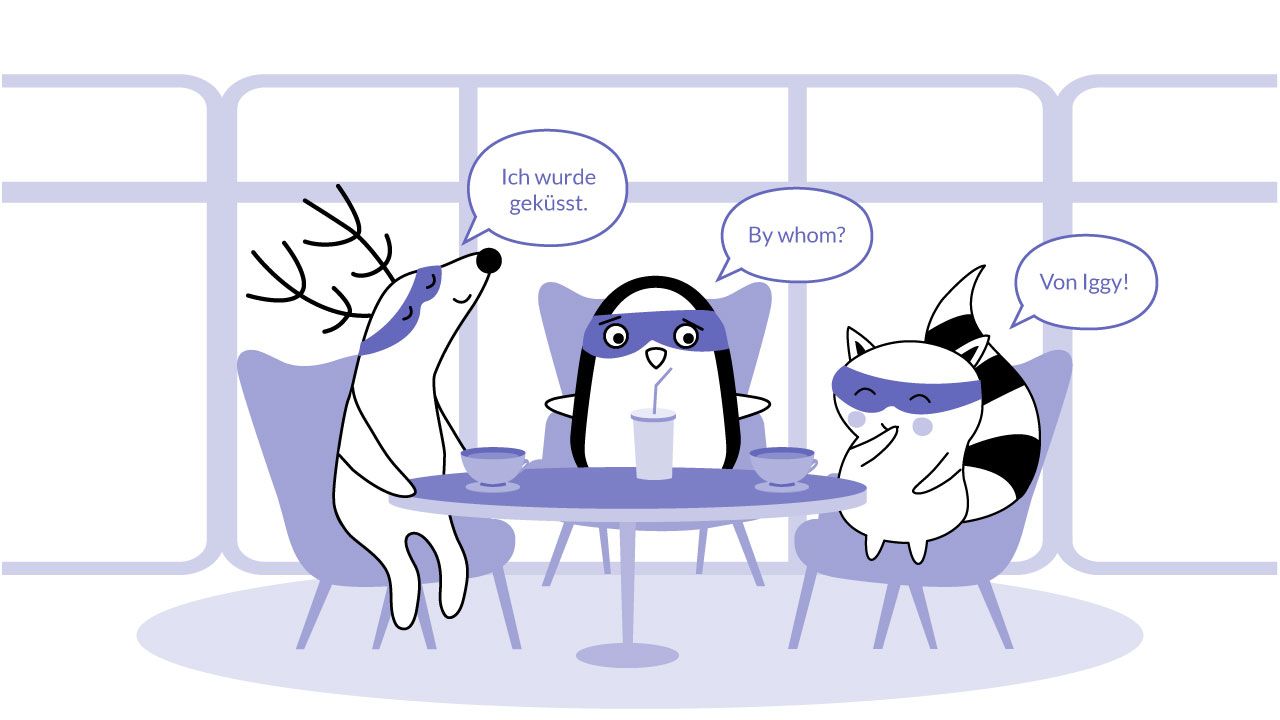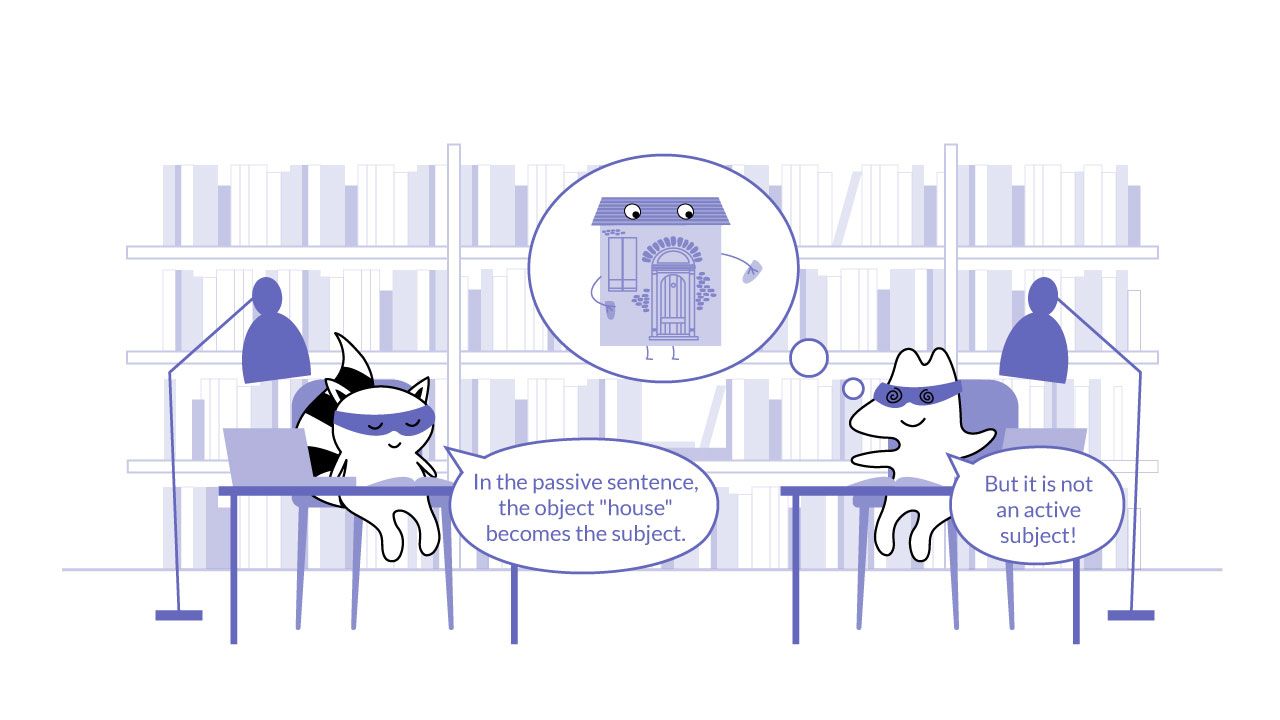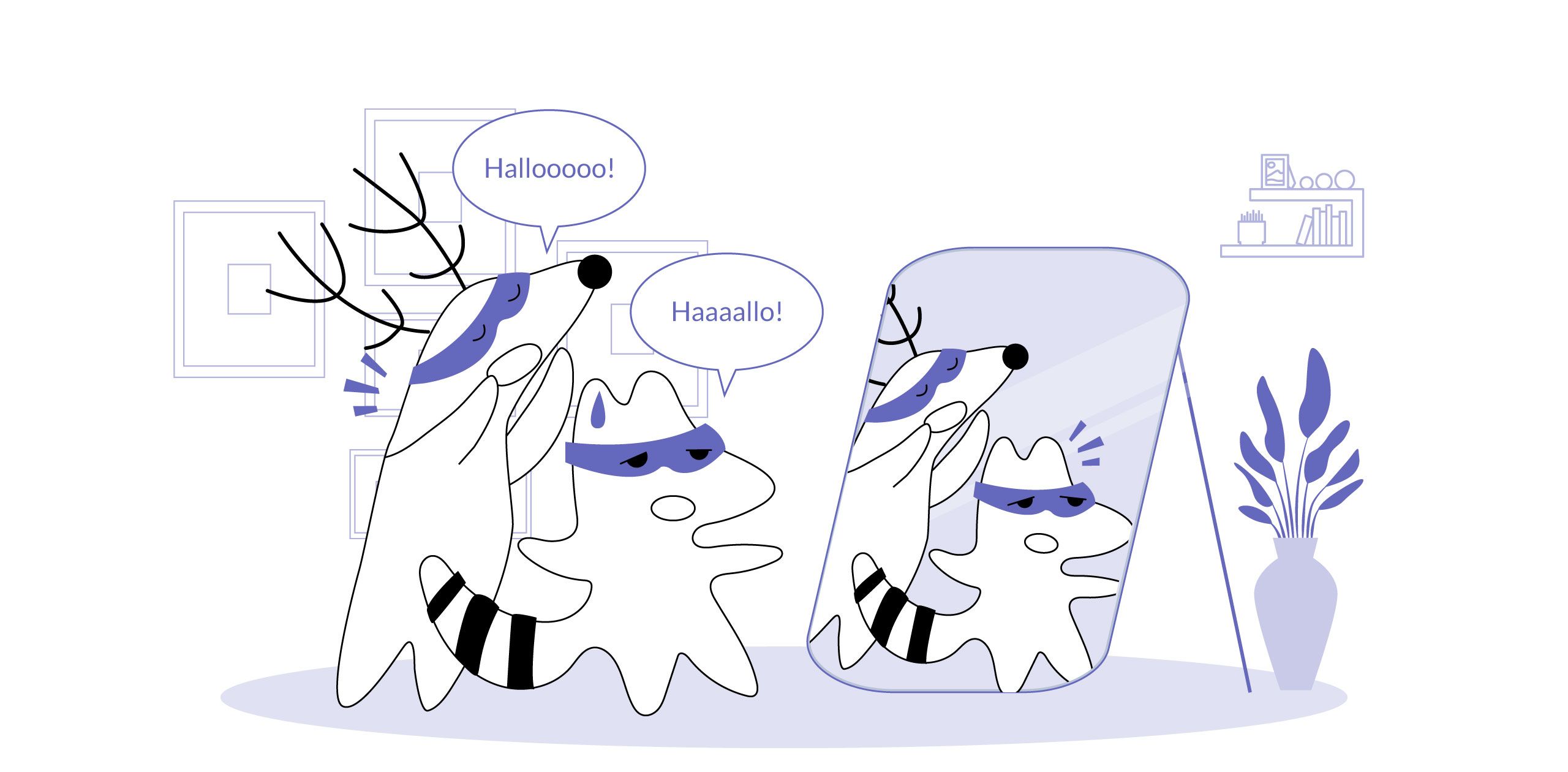
When telling a story, you always have two options. Either you construct a story around a protagonist, who can be yourself, another person, or an animal, and allow the audience to experience the story through their perspective, or you tell the story in a more general and informative manner.
The first example, revolving the story around a protagonist, requires using the active voice. The second option, describing a story in a general and informative manner, requires using the passive voice.
There is a difference between saying, "The boy found the dog in the city" and "The dog was found in the city (by a boy)." The second phrase is more descriptive, whereas the first invites you to follow the protagonist's actions and become emotionally involved.
The passive voice is not a tense but a style of expression used in the past, future, or present tense. In the same way that the active or passive voice exists in English, it also exists in the German language.
In this post, we will demonstrate how and when to use the passive voice in German, as well as how to distinguish between an active and a passive sentence in German. Read on!
Learn German with Langster
How to Build the German Passive Voice
You can form the German passive voice in the same way as in the English language - for example: "the movie is played" - with the auxiliary verb (is) and the past participle (played) of a verb. In German, you use the auxiliary verb "werden" (to become) instead of "to be." Let's do an example with the following active sentence:
German
English
Jemand füttert die Katze.
Someone feeds the cat.
If we transform the active voice into a passive voice, the sentence will look like this:
German
English
Die Katze wird gefüttert.
The cat is being fed (at this moment).
You can see that an action is taking place (the cat being fed) despite the fact that no mentioned agent is performing the action (feeding the cat). That is a characteristic trait of the passive voice.

"Das Passiv" - What About Grammar?
To build the passive voice in the present tense in German, you have to know how to conjugate the verb "werden" (to become) and how to create the Partizip II (past participle) of a verb. That might be a lot of information for beginners, which can make the passive form a little unattractive.
However, you can always start with just a few verbs and, after time, add more. Let us first show you the conjugation of the auxiliary verb "werden" (to become):
| ich werde | wir werden |
| du wirst | ihr werdet |
| er/sie/es wird | sie werden |
| ich werde | wir werden |
| du wirst | ihr werdet |
| er/sie/es wird | sie werden |
Now, you have to add a past participle, which in many cases is built using the third person singular and the prefix ge-. If the verb is "kaufen" (to buy), the third person singular is "kauft," and with ge-, it turns into the past participle "gekauft."

As a result, a passive sentence with this verb could be "Die Kekse werden gekauft" (the cookies are bought). There are more rules and some exceptions when it comes to building the past participle in the German language, but for now, this is enough.
Now, try yourself with our short quiz:
Quiz
1/2
Try to build the German past participle: reden (to talk).
0
correct answers.
The Passive Voice in Other Tenses
With a bit of effort, you can put German passive sentences in all German tenses. You just have to use the verb "werden" in the correct tense, and remember that the participle doesn't change. In Präteritum (simple past), for example, "werden" changes to "wurden." Have a look at the following sentences:
German
English
Ich wurde geküsst.
I was kissed.
Ihr wurdet geschickt.
You were sent.
You can see that the only difference is the modification of the first verb, just like in the English language. In the future tense, you don't even have to change the verbs; you just have to add the verb "werden" twice.
"I will be kissed" would be "Ich werde geküsst werden." The first "werden" represents the future tense and the second "werden" is the auxiliary verb for the passive tense.
The passive voice in present perfect and past perfect is a bit more complicated, and we will not cover that in this post. For now, let us show you two examples to get an idea.
Present perfect tense:
German
English
Ich bin geküsst worden.
I have been kissed.
Past perfect:
German
English
Ich war geküsst worden.
I had been kissed.
Passive Voice With an Agent
We mentioned before that there is no need for a performing agent in a passive sentence. Nevertheless, you can add information about an agent without putting him in the center of attention. Consider the following situation:
German
English
Die Katze wird von Max gefüttert.
The cat is fed by Max.
By adding "von Max" or "by Max," you give more information about the action without making it an active sentence. The active version would be "Max füttert die Katze" (Max feeds the cat).
So, to mention the agent when expressing a sentence in the passive voice in German, you use the preposition "von" and add the agent.

The Sentence Structure With the German Passive Voice
As we mentioned before, in contrast to the active voice, the German passive voice doesn't use an agent when telling a story. That means there is a grammatical impact on the sentence when you’re changing its form.
Look at the following two sentences and observe what changes:
Active sentence:
German
English
Max baut ein Haus.
Max builds a house.
Passive sentence:
German
English
Das Haus wird (von Max) gebaut.
The house is built (by Max).
You can see how the active verb "bauen" transforms into the structure "werden + Partizip II" and how the word order changes in the passive voice.
The Object Becomes Subject
We marked the subject (nominative case) of the sentence in bold and underlined the direct object, which in German would be called "Akkusativobjekt" (object in accusative case).
In the German passive voice, the direct object (Haus) takes over the subject position but is no active subject as the house itself is not doing anything. The old subject (Max) is not necessary for the passive sentence but can optionally be added through the preposition "von."

Final Thoughts
The German passive voice is an intermediate-level grammar structure. It should not be the first grammar rule you practice when learning German. When you already know various tenses in German, building the passive voice will be easier.
To learn about time tenses and the passive voice in German, we can suggest you have a look at the Langster app. The app is especially helpful for understanding how the passive voice works because the app offers you short stories where you can observe how people use language to communicate.
We hope that this post can help you build some passive sentences or differentiate between active and passive sentences when listening to someone or reading in German. Stay motivated!








